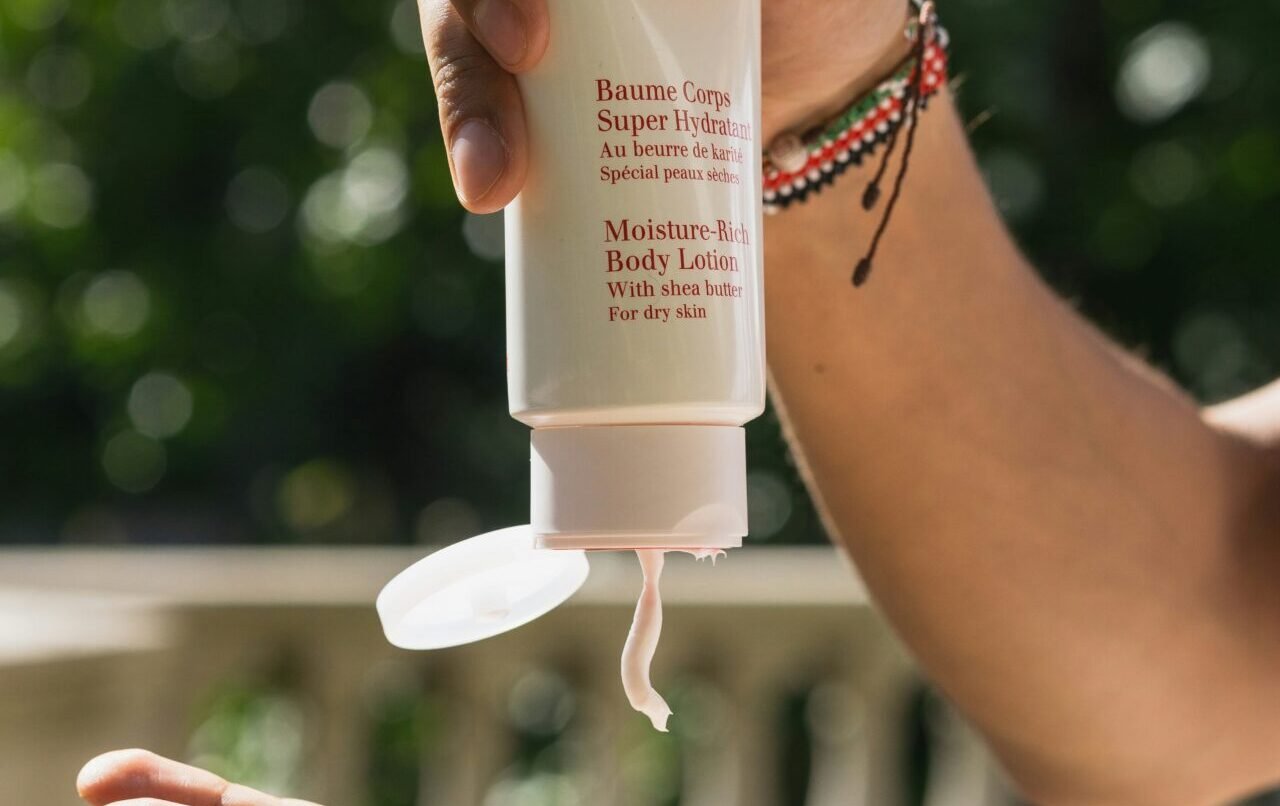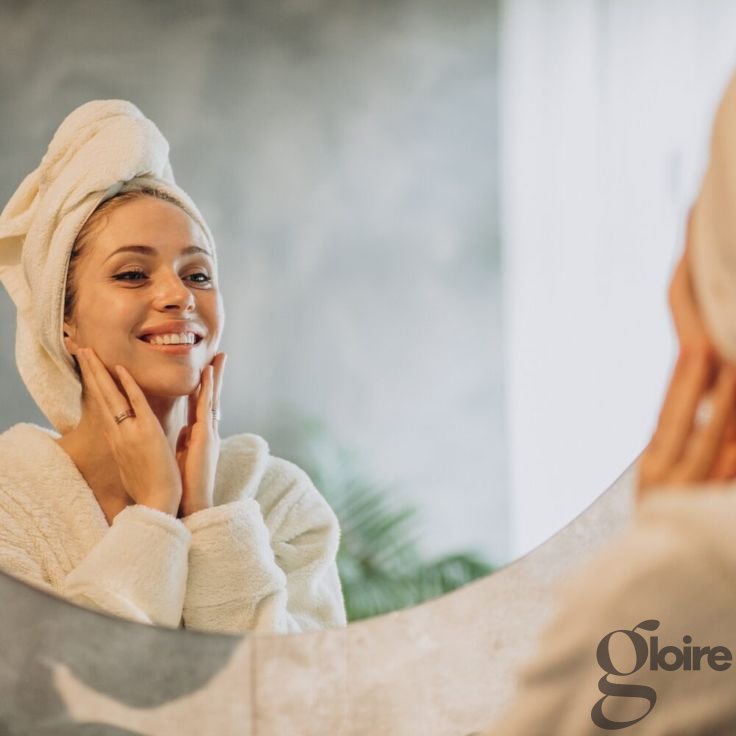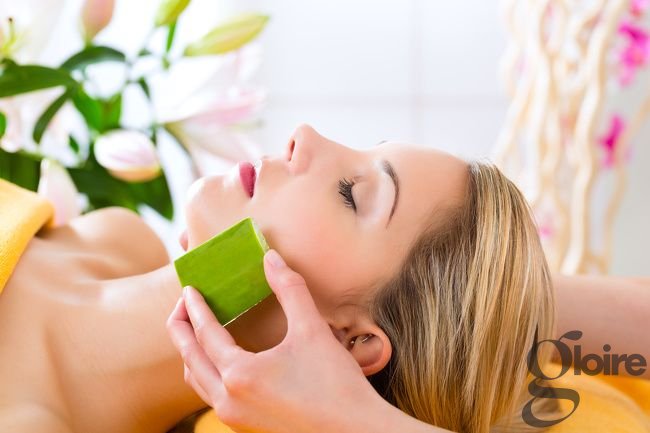What Is Body Cream?
Body cream is a thick, rich moisturizing product designed to deeply hydrate and nourish the skin. It typically contains a higher concentration of oils compared to water, giving it a dense consistency. Body creams are ideal for:
- Dry and flaky skin: The rich formulation locks in moisture, making it perfect for tackling dry areas.
- Cold weather: Body creams provide an extra layer of protection against harsh winter conditions.
- Specific areas: These are effective for elbows, knees, and feet, which tend to be drier.
Ingredients in Body Cream
Common ingredients include:
- Shea Butter: Provides deep hydration.
- Cocoa Butter: Offers a soothing effect.
- Essential Oils: Enhance skin’s elasticity.
- Glycerin: Helps retain moisture.
What Is Body Lotion?
Body lotion is a lightweight moisturizer that absorbs quickly into the skin. It has a higher water content than body cream, making it less greasy and suitable for everyday use. Body lotions are perfect for:
- Normal to slightly dry skin: Provides hydration without a heavy feeling.
- Humid climates: Lightweight formulation prevents clogging pores.
- Daily skincare routines: Easy to apply and quick to absorb.
Ingredients in Body Lotion
Common ingredients include:
- Aloe Vera: Soothes and hydrates.
- Hyaluronic Acid: Retains skin’s moisture.
- Vitamin E: Protects against environmental stressors.
- Natural Extracts: Such as cucumber or chamomile for added benefits.
Key Differences Between Body Cream vs Body Lotion
Understanding the difference between body cream vs lotion is crucial to picking the right product. Here’s a detailed comparison:
1. Consistency
- Body Cream: Thicker and denser due to higher oil content.
- Body Lotion: Lighter and more fluid, with higher water content.
2. Moisturizing Level
- Body Cream: Provides intense hydration, ideal for very dry skin.
- Body Lotion: Offers moderate hydration, suitable for normal to slightly dry skin.
3. Application
- Body Cream: Takes longer to absorb but stays on longer.
- Body Lotion: Absorbs quickly, making it convenient for busy mornings.
4. Best Use
- Body Cream: Use during colder months or on rough areas like elbows and knees.
- Body Lotion: Perfect for summer or when you need a light moisturizer.
5. Skin Type Suitability
- Body Cream: Better for dry and sensitive skin.
- Body Lotion: Works well for oily and combination skin.
Is Body Cream Lotion?
This is a common question. While both body cream and lotion fall under the category of moisturizers, they are not identical. The difference lies in their texture, ingredients, and intended use. Body lotion is lighter and suitable for regular hydration, while body cream offers a more concentrated solution for dryness.
Benefits of Using Body Cream
Body cream provides several advantages, particularly for individuals with dry or sensitive skin. Benefits include:
- Deep hydration: Penetrates deeper layers of the skin.
- Skin barrier protection: Forms a protective layer against environmental stressors.
- Versatility: Effective for various skin concerns like eczema and psoriasis.
Cold Weather Skincare
In a study conducted on winter skincare routines, participants using body cream reported a 30% improvement in skin hydration compared to those using lotion. This highlights the efficacy of creams in combating extreme dryness.
Benefits of Using Body Lotion
Body lotion is a versatile and convenient choice for daily skincare. Benefits include:
- Lightweight formula: Feels comfortable on the skin.
- Non-greasy: Suitable for humid conditions.
- Quick absorption: Ideal for morning routines.
Tropical Climates
Individuals living in humid regions often prefer body lotion. Its lightweight formula prevents a sticky feeling, providing hydration without heaviness.
Choosing Between Body Cream vs Body Lotion
When deciding between body cream and lotion, consider the following factors:
1. Skin Type
- Dry Skin: Opt for body cream to ensure deep hydration.
- Oily Skin: Choose body lotion to avoid clogged pores.
2. Climate
- Cold Weather: Body creams provide extra protection.
- Hot Weather: Body lotions offer lightweight hydration.
3. Usage Areas
- Rough Areas: Body cream is more effective.
- Full-Body Application: Body lotion is easier to spread.
4. Personal Preferences
- Texture: Some people prefer the rich feel of cream, while others like the lightness of lotion.
Practical Tips for Using Body Cream and Body Lotion
- Apply after a shower: Maximize absorption by applying on damp skin.
- Focus on target areas: Use cream on elbows and knees and lotion for the rest of the body.
- Combine with other skincare: Pair with sunscreen or serums for enhanced benefits.
Related Skincare Tips
For more insights into maintaining healthy skin, check out these resources:
- How to Repair a Damaged Skin Barrier
- Dry Skin: Causes, Symptoms, and Treatments
- The Right Skincare Routine for Oily Skin
Conclusion
Understanding the difference between body cream and lotion can significantly improve your skincare routine. Body cream is ideal for dry, rough areas and colder climates, while body lotion offers lightweight hydration for everyday use. By evaluating your skin type, climate, and preferences, you can select the best option for your needs.
For more expert advice on skincare, visit Gloire’s Blog.








